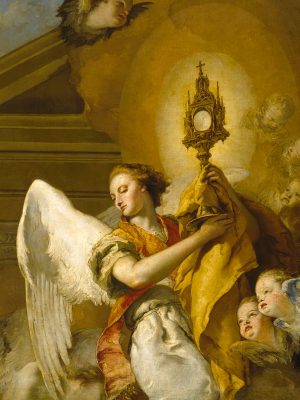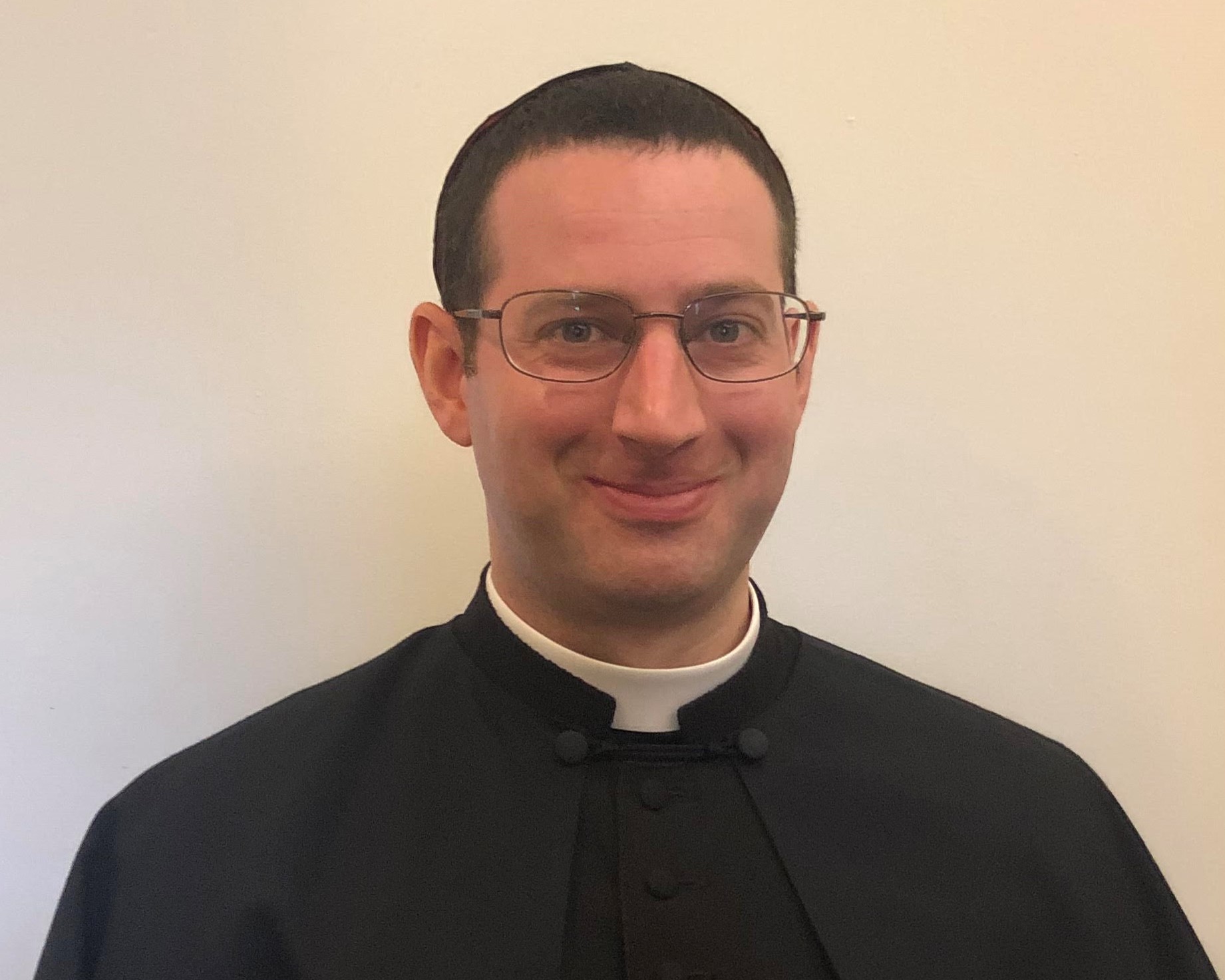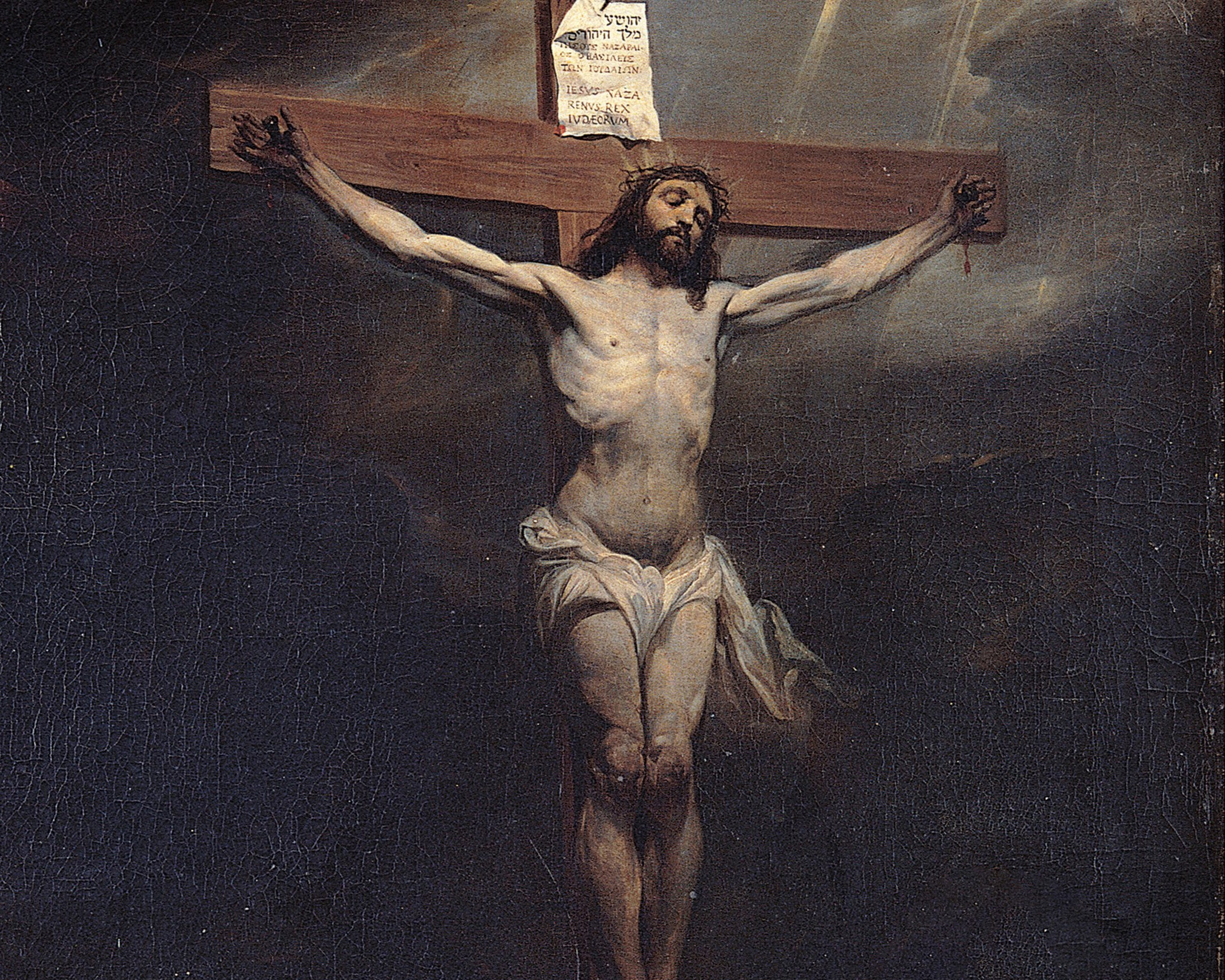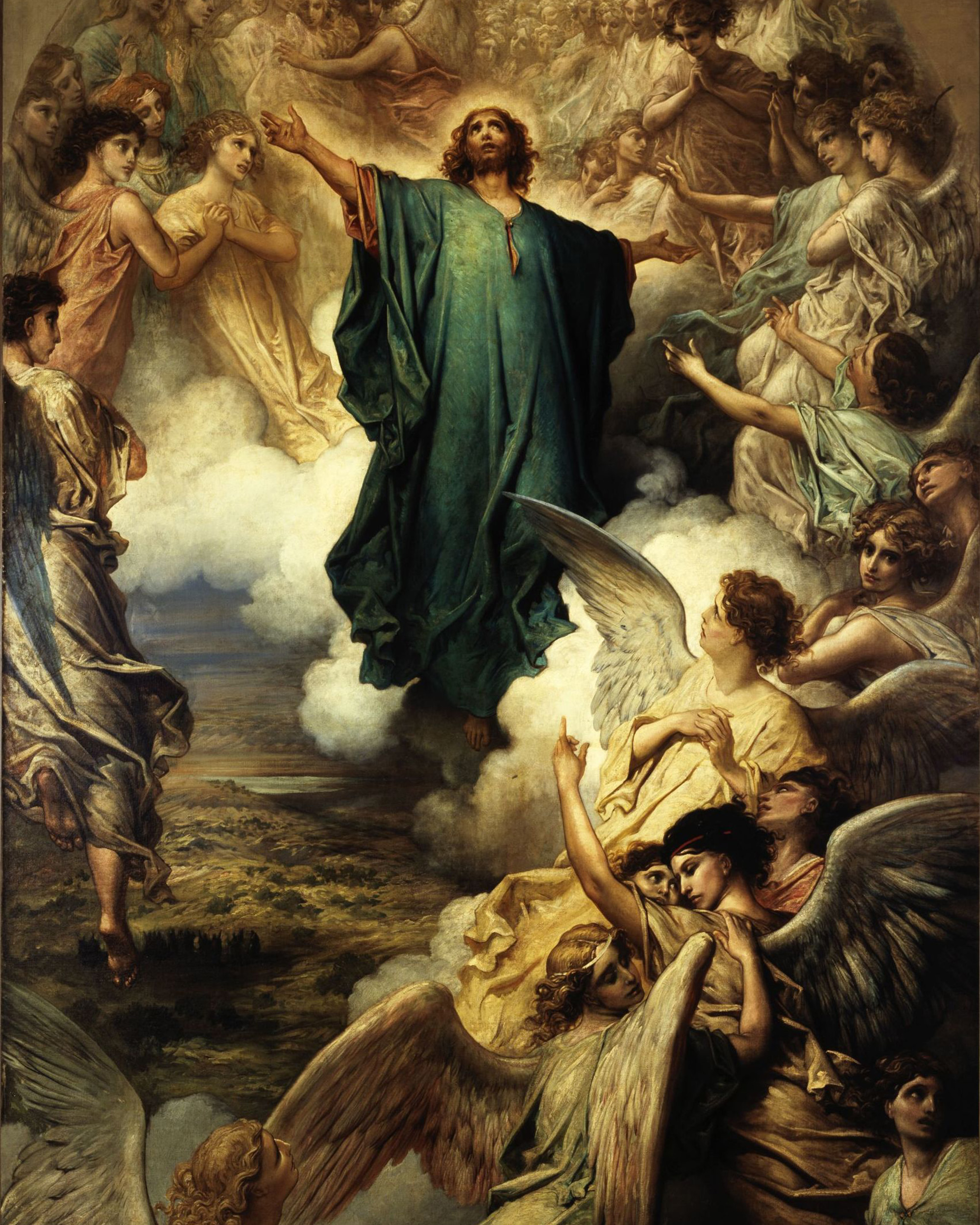In the previous article, it was related that by Sanctifying Grace one becomes an adopted child of God. The phrase “Son” or “child of God,” however, has three different meanings which we need to keep unconfused if we are to have a proper understanding. The first meaning of the phrase “Son of God” refers to One Who has naturally the same nature as God the Father. This uniquely and solely refers to the Word, the Second Person of the Holy Trinity, the Eternally Begotten Son of God, co-equal and co-eternal with the Father, Who assumed a human nature of the Virgin Mary and was born for our salvation. This being the case, the use of the phrase in this manner can never apply to mere human beings or angels, but only and uniquely to God the Son.
Secondly, the phrase “son” or “child of God” can refer to those creatures of God which have an intellectual nature. This use would then apply to all human beings and to all the angels. It is in this sense that we can say that all men are “children of God,” that is children of God by creation. While this status of children of God by creation does afford such creatures a certain dignity, it does not, on its own, avail to salvation.
The third use of the phrase “son of God” is that of an adopted son or adopted child of God. Adoption, for its part, is freely taking an outside person and accepting that person as a child with the right of inheritance. Three things are implied by this understanding of filial adoption: (1) community of nature between the adopter and the one being adopted – for a man cannot not truly adopt, for example, an animal or a statue; (2) paternal affection; and (3) the right to a paternal inheritance. We will briefly discuss each one in turn.
Regarding the first point, it can be asked, and rightly so, how can there be a community of nature between God and His creatures? Between the created and the Creator there is an infinite divide. While bridging such a divide is impossible for man, it is not impossible for God. God, by His almighty power, elevates us and makes us – as St. Peter wrote in his second Epistle (1:4) – “partakers of the divine nature” through Sanctifying Grace – that great gift from God which gives divine life to the soul. This gift of Sanctifying Grace, as has been explained previously (see here, here, here, and here), divinizes those who possess it, and while they remain human beings, they are no longer just human beings. This supernatural elevation is what provides the necessary community of nature between the Adopter and the one being adopted (a longer treatment is given here).
Fr. Royo Marin, a Dominican writing in the 1940s, in his Theology of Christian Perfection, upon which this article heavily relies, explains the second point, paternal affection, as follows: “on the part of the one adopting there must be gratuitous love and free election, for no one has the right to be adopted and no one has an obligation to adopt” (p. 16 in the 1962 Jordan Aumann, O.P. translation). We must realize that our adoption by God is a free choice on the part of God, both in regards to His decision to adopt or not and also with regards to whom it is He adopts. One cannot earn the right to be adopted by God, nothing one does can make one worthy of it. It is God’s love and generosity which bring it about. For those of us who have been so adopted, we should always be mindful of the gratitude which we owe to God for choosing us.
Finally, this filial adoption implies a right to a paternal inheritance. This is why St. Paul wrote concerning divine adoption: “and if a son, an heir also through God” (Gal 4:7). Again, Fr. Royo Marin explains this point as follows: “among men the sons inherit only at the death of the father, and the inheritance is less as the sons are more numerous. But our Father will live for all eternity, and we shall possess with Him an inheritance which, in spite of the number of inheritors, will never diminish or lessen. For this inheritance is basically infinite. It is God Himself, one in essence and three in persons, the principal object of our inheritance as adopted sons” (pp. 16-17).
This divine adoption is brought about by the same thing which brings about the community of nature between the Adopter and the one adopted – Sanctifying Grace. As such, one becomes an adopted, living child of God at Baptism and continues to be so as long as one remains in a state of Sanctifying Grace. If Sanctifying Grace is lost through mortal sin – God forbid – then the community of nature and the right to the paternal inheritance is lost. All of this is regained when one is again in a state of Sanctifying Grace – usually through the Sacrament of Penance.
With this knowledge, let us then follow the admonition given by Pope St. Leo the Great in his first Christmas homily and “know our dignity” as Christians, as adopted children of God, elevated to a participation in the Divine Nature and promised the inheritance of eternal life all due to God’s free choice. May we guard our adoption by avoiding mortal sin and its occasions. And let us always give thanks to the Son Who, as St. Leo expressed in his 6th Christmas homily, “was made a Son of Man, that we might become the sons of God.”







